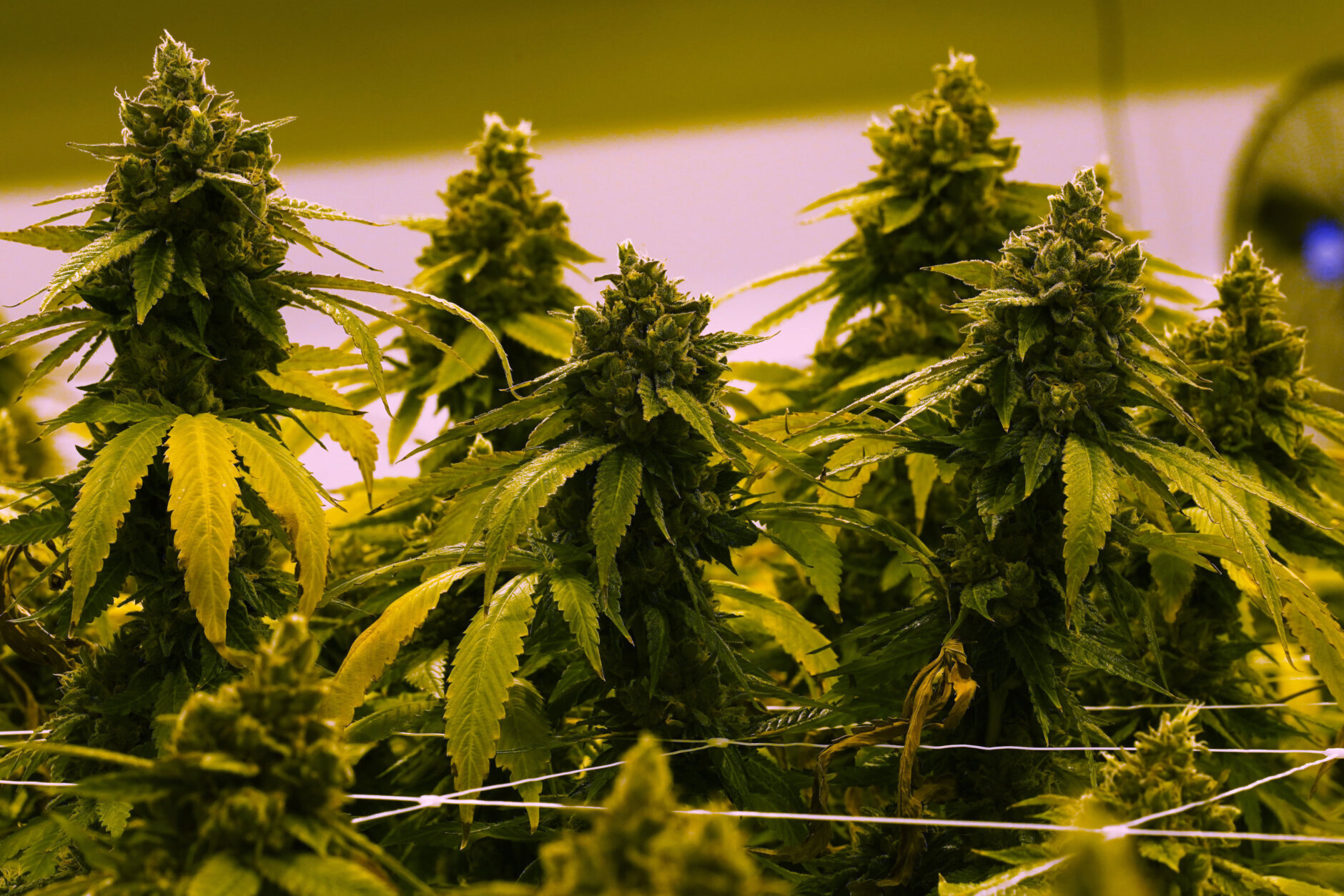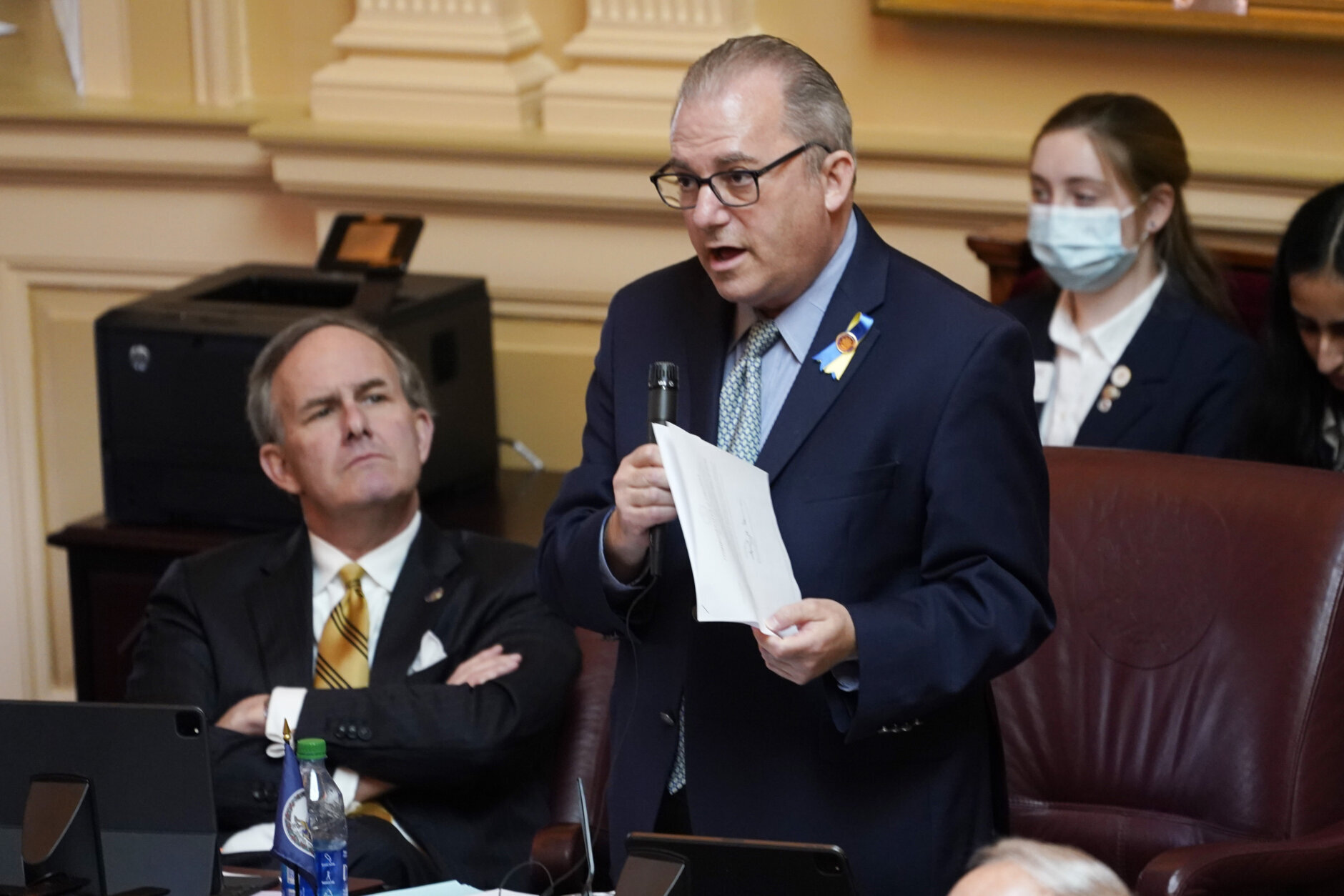



RICHMOND, Va. (AP) — In 2021, Virginia became the first Southern state to legalize marijuana, adopting a policy change that allowed adults to possess and cultivate the drug.
But lawmakers didn’t fully enact a framework for recreational retail sales. Partisan gridlock thwarted any movement on the issue last year, and 2023 looks unlikely to be any different.
A Republican-led House panel defeated on Tuesday the Democrat-controlled Senate’s main surviving retail bill, which would have allowed sales to begin next year through existing medical marijuana dispensaries and at new retail businesses in communities that have historically been economically disadvantaged.
“We are kind of dragging our feet on establishing a retail market that could provide hundreds of millions of dollars in tax revenue, could provide a tested product for adults and could be kept out of the hands of children,” Sen. Adam Ebbin, the bill’s sponsor said, just before the subcommittee defeated the measure.
With the sale of marijuana still illegal outside of medical dispensaries, the state finds itself in a holding pattern that some say has increased black-market marijuana sales and allowed unregulated, intoxicating hemp-derived products to proliferate and sicken people, including children.
“Having legal possession without legal procurement just doesn’t make sense,” said Trent Woloveck, the chief strategy director for Jushi — a multistate, publicly traded cannabis company that’s currently permitted to operate a grower-processor facility and medical dispensaries in Virginia.
Earlier this session, the same House subcommittee killed a bill that would simply have directed the Virginia Cannabis Control Authority to draft regulations for the retail marketplace. The legislation would have brought the regulations to the General Assembly again next year before retail sales could begin.
Greg Habeeb, a lobbyist who represents the Virginia Cannabis Association, testified that he thought the watered-down bill should win unanimous approval and could be something Republican Gov. Glenn Youngkin would support. The bill’s failure shows that “there’s not much hope for a full-fledged adult use bill to pass,” Habeeb said in an interview.
Youngkin, a possible 2024 presidential contender, has not weighed in directly on retail sales, though his administration has opposed bills that would establish them. He told reporters last month that he is focused on reining in the proliferating hemp-derived products, including those containing delta-8 THC — a psychoactive chemical cousin of marijuana’s main intoxicating ingredient.
“The bill I am tracking and looking for is a bill that deals with hemp and delta-8 and the regulations and consumer safety around those products. And right now, we have products that are being mislabeled and missold and being targeted toward children,” said Youngkin, whose press office declined to elaborate on his position Tuesday.
A handful of bills aimed at enacting consumer protection mechanisms for unregulated, intoxicating cannabinoid products have been introduced this year. Of the measures that are still alive as the session draws toward a close, one is sponsored by Republican House Majority Leader Terry Kilgore and another by Republican Sen. Emmett Hanger. Both would establish packaging, labeling and testing requirements.
It appears likely the issue is headed for a conference committee, a small group of lawmakers who meet to work out a compromise when the two chambers’ versions contain intractable differences.
In a recent committee hearing, Kilgore said of his bill: “I think it’s very similar to Sen. Hanger’s. I know there’s a few differences — there may be some more — but we’re just trying to get the process moving forward.”
Hanger responded that it wasn’t clear yet “how similar the similarities are,” but he didn’t object to moving the ball forward.
The exchange was in line with other committee hearings this session on cannabis issues, which have been at varying times contentious, disjointed or limited in discussion about what the legislation at hand would actually do.
Senate Democrats have acknowledged that the initial legalization bill passed in a relatively chaotic rush but have laid blame at Youngkin’s feet for being apparently uninterested in moving the issue forward this session.
“We found out when we got in, it was complicated, and we needed to spend more time to figure it out,” Sen. Scott Surovell said about Democrats’ initial legislation. “Then we got a new governor who doesn’t want to talk about it. And all these problems are not going to get resolved until the governor steps up to the table.”
Republicans, who don’t have the votes to roll back legalization, have repeatedly slammed Democrats for creating the situation Virginia finds itself in.
“They did not pass the bill to legalize cannabis without creating a cannabis market,” Habeeb, a former GOP lawmaker, said of Republicans. “That’s the hand they’ve been dealt and that they now have to figure out how to deal with.”
Copyright © 2026 The Associated Press. All rights reserved. This material may not be published, broadcast, written or redistributed.







